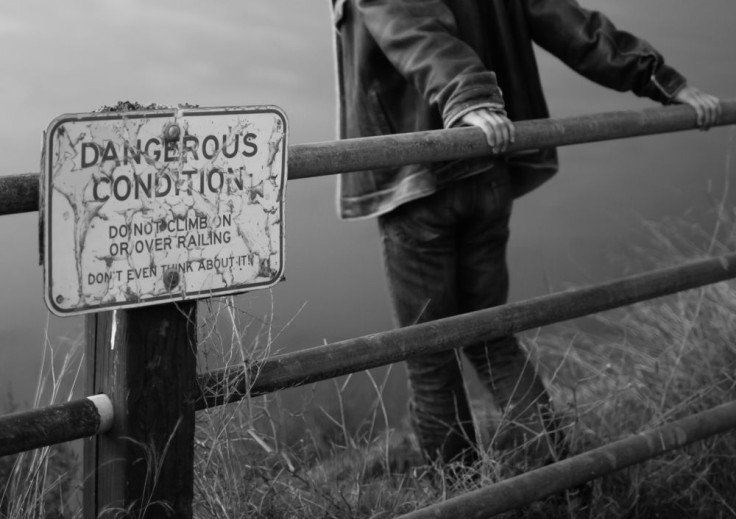'No Regrets' Is No Way To Live: Why You Should Stop Pressing Ctrl+Z On Your Life

There comes a point in our lives when we take time to reflect on the milestones and good times, along with what we could have done better. Oftentimes, we’ll express some form of regret, big or small, and get caught up on being “wrong.” Although regret is the most common negative emotion in daily life, it’s actually OK to do away with the old adage and instead live a life with regrets.
Regret And Learning From Our Mistakes
One of the earliest forms of embracing regret can be tied to Shakespeare’s Macbeth. In the play, Lady Macbeth says, “What’s done is done.” She encourages us to learn to live with regret and not without it. This helps us learn to embrace the flawed and imperfect things we create, while forgiving ourselves for creating them. This is where the focus shifts from the bad that is done to the better than can be done.
Regret can help us learn from our mistakes. We are able to identify things we think have caused negative outcomes in our lives. A 2010 study published in the Journal of Personality and Social Psychology found people tend to feel the most regret about things that they realize they really could have done differently or about things that would have an impact in a situation.
“If we did not feel regret, we would not be motivated to change,” Dr. Vanessa Pawlowski, a psychologist with a private practice in Beverly Hills, Calif., told Medical Daily in an email. “Looking at it in this way allows regret to be motivating. It is still possible for some things to change in the future, even if it is not the exact same things we wanted to change in the past. This serves us to do better.”
Despite its potential benefits, regret, like many other uncomfortable emotions, has a negative connotation in our society. It is not seen as a natural part of life and learning and growing, says Pawlowski. Instead it is viewed as a problem if you have it. It’s better to deal with regret when it’s fresh rather than ignore it for years and then finally be forced to look at it.
Who Is More Prone To Regret?
We all tend to feel different types of regret, but some of us are more susceptible to this negative emotion than others. People who set high expectations for themselves, and even perfectionists, are more likely to feel regret as they tend to view their mistakes as failures.
“People who struggle with anxiety and depression will focus on their regrets for longer periods of time and therefore wind up feeling regret more often than others do,” Pawlowski said.
It also seems the older we get, the more disengaged we are from regrets. A 2012 study published in the journal Science found healthy older adults were not affected by regret when they missed a chance to earn more money in a game, compared to the young adults and the depressed older adults. In other words, regret is treated as a “powerful mental energy” for young adults that motivates them, in this case, to take bigger risks. This suggests negative attitudes about regret can be altered and adapted to positive ones that can have beneficial results.
The Art Of Embracing Regret And Its Phases
Kathryn Schulz, a journalist, author, and book critic for New York magazine, believes in the power of embracing regret. She challenges human nature’s perceptions about regret and failure using the most common example of tattoo regret, specifically hers. During her TED Talk “Don't Regret Regret,” the book critic acknowledges although her tattoo regret is trivial in the scheme of things, it still symbolizes the essence of regret and how it affects us. It allows us to reflect and think about our actions when they do not coincide with our values.
What does regret feel like? “It feels terrible. Regret feels awful. But it turns out that regret feels awful in four very specific and consistent ways,” said Schulz in her TED Talk. Denial, is the first consistent component of regret that is experienced, which is an “unbelievably primitive emotional response.” This is followed by a sense of bewilderment, which is an alienation from the part of us that made a decision that we regret. The inability to empathize with our situation leads to the third component of regret: desire to punish ourselves, according to Schulz. The last component of regret is perseveration, which is taking all of these components of regret and putting them in an infinite loop.
These components of regret are experienced by everyone who feels regret, but how do we make our peace with it? Schulz suggests taking some comfort in its universality, laughing at ourselves, and thinking of regret as a passage of time, where time does heal all wounds. Not only does this make regret subjective, but viewing it in a positive light can help us make our peace with it.
This can become a fundamental part of who we are. We better ourselves through the mistakes that we make and learn from. April Masini, author of four relationship advice books, the “Ask April” advice column, and the free Q&A forum AskApril.com, told Medical Daily in an email: “Regret is a feeling that can be a tool to help you evolve into a better human being. Advancement doesn’t just happen. It’s usually based on conscious change.”



























